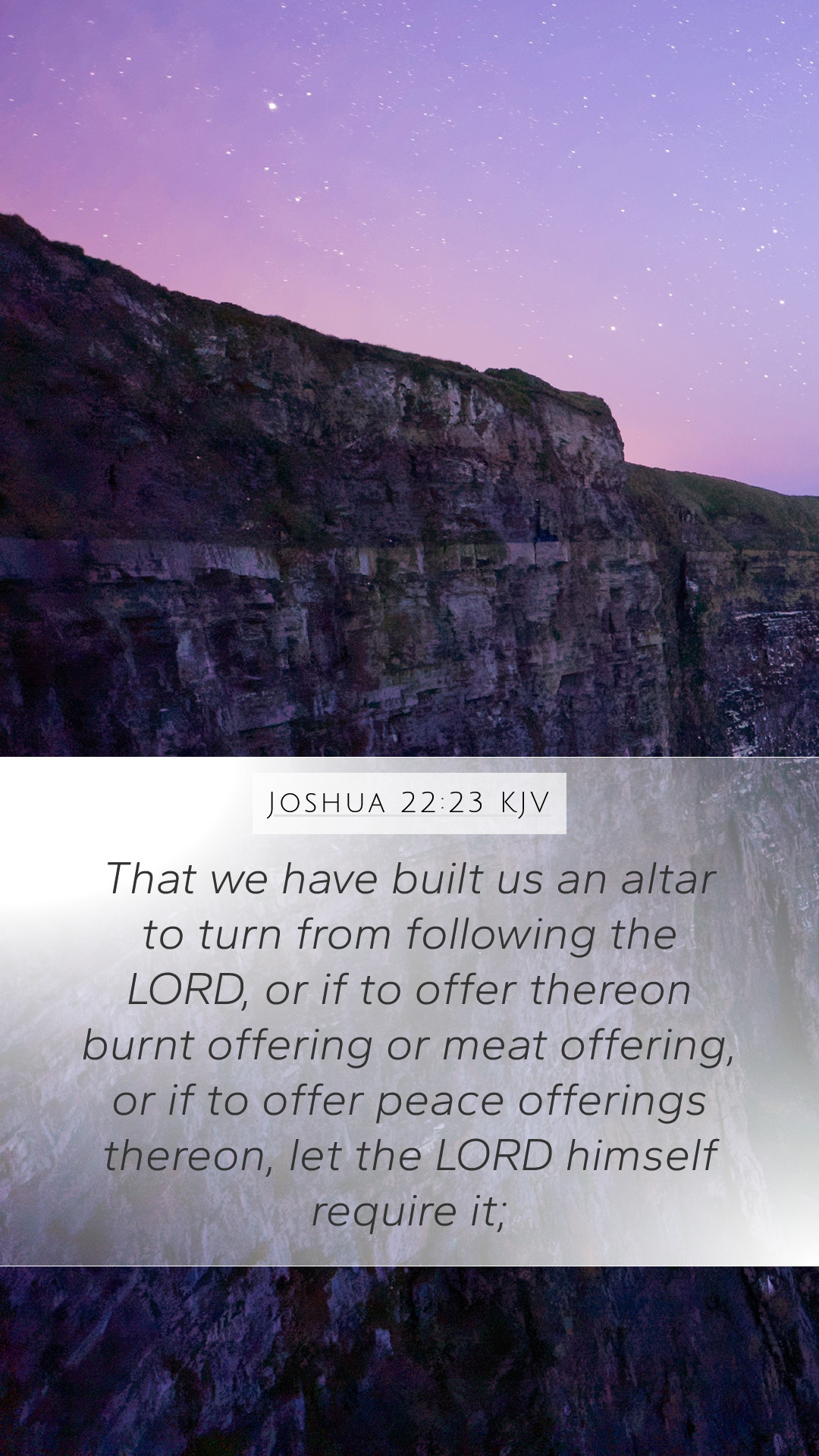Bible Verse Meaning: Joshua 22:23
Overview: Joshua 22:23 is a crucial verse in the Old Testament that encapsulates significant themes of unity, worship, and the consequences of misinterpretation. This insight delves into the profound meaning and implications of the verse, contributing to a broader understanding of Scripture.
Verse Text: "And that we have built us an altar to turn from following the Lord, or if to offer thereon burnt offerings or meat offerings, or if to offer peace offerings thereon, let the Lord himself require it." (Joshua 22:23 KJV)
Contextual Background
To fully grasp the meaning of this Bible verse, one must explore its context within the Book of Joshua. The Israelites, after conquering the Promised Land, were divided into tribes, each receiving its designated territory. The tribes of Reuben, Gad, and the half-tribe of Manasseh settled east of the Jordan River. This geographical division raised concerns among the other tribes regarding the loyalty of these eastern tribes to God.
Summary of Commentaries
Matthew Henry's Commentary
Henry highlights the significance of the altar built by the eastern tribes, noting that the intention behind its construction was misinterpreted by the other tribes. They feared a potential rebellion against God’s covenant. The altar was not for sacrifices but a witness of their partnership in faith. Henry emphasizes communication and clarity in understanding each other’s motives in faith.
Albert Barnes' Commentary
Barnes elaborates on the purpose and interpretation of the altar built by the eastern tribes, stating that it was constructed as a memorial of their shared heritage and worship. He critiques the fears that led to accusations of idolatry and reinforces that worship should be centered on God, not space or structure. Misinterpretations can lead to unnecessary conflict among believers.
Adam Clarke's Commentary
Clarke offers a linguistic analysis, stressing the gravity of using the term "require" which implies that God would seek justice regarding their actions. He underscores the importance of intentions behind actions and cautions against hasty judgments. Clarke encourages reflection on how the believers' actions and intentions align with true worship.
Key Themes and Insights
- Unity and Division: The concern related to the altar illustrates the tension between maintaining communal unity in worship and the potential for division based on misunderstandings. This is a valuable lesson for contemporary church dynamics.
- Worship Intentions: The verse invites believers to examine the motivations behind their acts of worship. True worship must focus on God rather than on human traditions or structures.
- Communication in Faith: The initial fear and response of the western tribes underscore the need for clear communication among believers to avoid unnecessary conflicts that can arise from misinterpretation.
- Divine Accountability: The term "let the Lord himself require it" reminds us that God holds believers accountable for their worship practices and intentions, which emphasizes the importance of authenticity in following Him.
Application to Daily Life
Understanding Joshua 22:23 encourages individuals and Bible study groups to engage in deeper discussions about worship's true nature and the importance of unity in the Body of Christ. It prompts a re-evaluation of personal and corporate worship practices and underlines the significance of clear communication about faith intentions.
Related Bible Cross References
- Hebrews 10:24-25: Calls for encouraging one another in our faith journeys.
- 1 Corinthians 1:10: Urges unity and avoiding divisions within the church.
- Genesis 31:48-49: A historical reference to altar-building as a witness.
Conclusion
Josh 22:23 is a powerful verse that fosters vital discussions surrounding worship, intentions, and community in faith. Engaging with this verse through study and commentary can deepen one’s Bible verse understanding and interpretations, enriching one's spiritual life.


